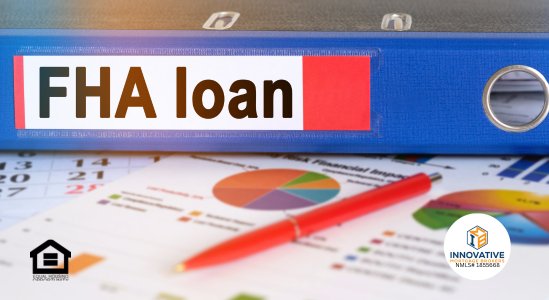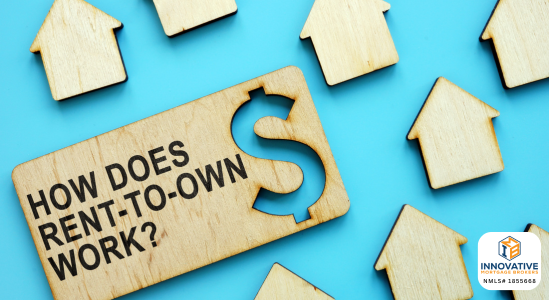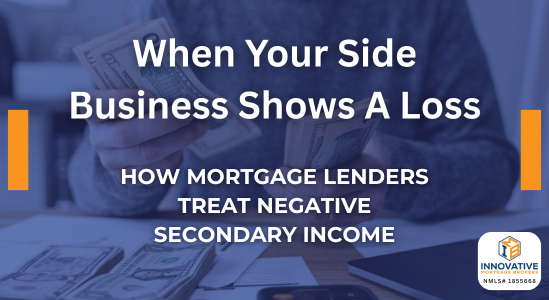Turning Rent into Equity Rent-to-own can work, but only when the paperwork is airtight. Lenders…
The Ultimate Guide to FHA Mortgages: A Simple Path to Homeownership in Pennsylvania

Buying a home can feel like an overwhelming experience, especially when it comes to figuring out how to pay for it. The good news is that the Federal Housing Administration (FHA) offers an excellent option for people looking to purchase their first home or refinance their existing mortgage with manageable down payments and credit requirements. Whether you’re a first-time homebuyer, self-employed, or facing credit challenges, an FHA loan could be the answer you’re looking for.
In this guide, we’ll break down FHA mortgages step by step, explain who they’re for, what benefits they offer, and how you can qualify. Let’s dive in!
What Is an FHA Loan?
An FHA loan is a type of mortgage that’s insured by the Federal Housing Administration (FHA), a government agency that aims to help more people become homeowners. The FHA doesn’t lend you money directly. Instead, it provides insurance to lenders, reducing their risk if you can’t make your mortgage payments. Because of this insurance, lenders can offer loans with lower down payments and more flexible credit requirements than conventional mortgages.
The Main Benefits of FHA Loans
- Low Down Payments: FHA loans allow you to make a down payment as low as 3.5% if you have a credit score of 580 or higher.
- Credit Flexibility: FHA loans are available to people with credit scores as low as 500, though you’ll need a 10% down payment if your score is between 500-579.
- More Lenient Debt-to-Income (DTI) Ratio: FHA loans allow a higher DTI ratio (how much of your income goes to paying debt) compared to conventional loans.
- Options for Refinancing: If you already own a home, you can use an FHA loan to refinance your mortgage at better terms or to access cash.
- Assumable Loan: FHA loans are assumable, meaning a buyer could take over your loan if they meet the FHA guidelines, which could be a huge advantage if interest rates rise.
Who Can Benefit from an FHA Loan?
An FHA loan is a great fit for many different types of buyers. Here’s how you might fit in:
First-Time Homebuyers
If this is your first time buying a home, you’re probably concerned about two main things: the down payment and your credit score. FHA loans are designed with you in mind:
- You can put down as little as 3.5%, making it easier to afford a home without waiting years to save up a large down payment.
- The credit requirements are much more forgiving than conventional loans, so even if you’ve had a few bumps along the way, you can still qualify for a loan.
People with Less-Than-Perfect Credit
Life happens, and sometimes credit takes a hit. Whether it’s from medical bills, missed payments, or other unexpected expenses, an FHA loan can help you bounce back:
- FHA loans accept credit scores as low as 580 for a 3.5% down payment, and if your score is between 500 and 579, you can still qualify with a 10% down payment.
- FHA lenders also allow for higher debt-to-income ratios, meaning you can carry more debt (like student loans, credit cards, or car payments) than a conventional loan would allow.
Self-Employed Individuals
Self-employed? You may have found it difficult to get approved for a conventional mortgage. The great thing about FHA loans is that they take a more comprehensive view of your income:
- You’ll need to provide documentation of your income over the past two years, like tax returns, but FHA loans are typically more flexible with your earnings than traditional lenders.
- Even if your income is variable, as long as you show a steady history, you can be approved.
Homeowners Looking to Refinance
Already own your home but looking for a better rate or access to cash? FHA loans also offer refinancing options, which can help lower your monthly payments, get cash out, or switch from an adjustable-rate mortgage (ARM) to a fixed-rate one, maybe even getting rid of PMI.
How to Qualify for an FHA Loan
To be eligible for an FHA loan, you’ll need to meet several important requirements, but don’t worry—they’re more forgiving than conventional loans. Here’s a step-by-step breakdown of the most important things lenders will look at:
Credit Score
The first thing lenders will check is your credit score:
580 or higher: You’re eligible for the low 3.5% down payment.
500 to 579: You’ll need a 10% down payment, but you can still qualify.
If your score is under 500, unfortunately, you won’t be eligible for an FHA loan, but you can work on rebuilding your credit and apply later.
Down Payment
One of the best features of an FHA loan is its low down payment requirement:
If your credit score is 580 or higher, your down payment can be as low as 3.5% of the home’s purchase price.
With a score of 500-579, you’ll need a down payment of 10%.
For example, if you’re buying a $300,000 home:
3.5% down payment = $10,500.
10% down payment = $30,000.
Debt-to-Income Ratio (DTI)
Your debt-to-income (DTI) ratio is the amount of your monthly income that goes toward paying debts (like credit cards, car loans, student loans, etc.). FHA loans are more lenient than conventional loans when it comes to DTI:
Your housing costs (mortgage, taxes, insurance) shouldn’t exceed 31% of your monthly income.
Your total debt payments (including housing costs) shouldn’t exceed 43% of your income.
If your ratios are higher, lenders can still make exceptions if you have compensating factors (such as high savings or a large down payment). Through Automated Underwriting system FHA could allow a housing debt ratio up to 46.99% and up to 56.99% total debt ratio.
Employment History and Income
FHA lenders want to ensure you have a stable income, so they’ll look for:
Two years of employment history, either with the same employer or within the same field.
Consistent or increasing income over the past two years.
If you’re self-employed, lenders will require two years of tax returns showing stable or increasing income.
Property Requirements
FHA loans aren’t just about you—they’re also about the property. The home you want to buy must meet certain standards to qualify for FHA insurance. These include:
Minimum Property Standards (MPS): The home must be safe, secure, and sound.
Appraisal: An FHA-approved appraiser will evaluate the property to make sure it meets these standards. They’ll look for things like a solid roof, working heating and cooling systems, and a lack of safety hazards (like exposed wiring).
Mortgage Insurance Premiums (MIP)
One of the trade-offs for the low down payment and more lenient credit standards of FHA loans is mortgage insurance. This protects the lender in case you default on the loan. There are two types of mortgage insurance premiums (MIP) you’ll need to pay:
Upfront Mortgage Insurance Premium (UFMIP)
This is 1.75% of your loan amount, and it can be paid at closing or rolled into your loan.
Annual Mortgage Insurance Premium (MIP)
This is an ongoing premium that you’ll pay every year, but it’s split into monthly payments. The amount depends on your loan’s size, term, and loan-to-value (LTV) ratio, but it typically ranges from 0.50% to .75% of the loan amount annually.
For example, if you have a $200,000 loan, the annual MIP is around $1,200, or around $100 per month.
When Can You Get Rid of MIP?
If your down payment is less than 10%, you’ll need to pay MIP for the life of the loan. However, if you put down 10% or more, the MIP will cancel after 11 years.
Refinancing with an FHA Loan
Already have a home and want to refinance? FHA loans offer some excellent refinancing options:
FHA Streamline Refinance
This is a great option if you already have an FHA loan and want to lower your interest rate or monthly payment. The process is quick, and there’s no appraisal or income verification required.
Cash-Out Refinance
Want to tap into your home’s equity? With a cash-out refinance, you can borrow against the equity in your home and use that money for home improvements, debt consolidation, or other needs. You can borrow up to 80% of your home’s value with this option.
Special FHA Programs
FHA offers several special programs for different kinds of buyers:
203(k) Rehabilitation Loans
If you want to buy a fixer-upper and make improvements, an FHA 203(k) loan lets you combine the cost of the home and the cost of repairs into one mortgage. This can be a huge benefit if you’re looking to buy a home that needs a little TLC.
Energy Efficient Mortgages (EEM)
Want to make your home more Eco-friendly? FHA Energy Efficient Mortgages allow you to finance energy-efficient upgrades like solar panels or insulation into your loan.
FHA Loans for Disaster Victims (203(h))
If your home was destroyed in a disaster, an FHA loan under the 203(h) program can help you rebuild or buy a new home with no down payment.
Assumable Loans: A Hidden Advantage
One lesser-known perk of FHA loans is that they are assumable. This means if you decide to sell your home, the buyer could take over your mortgage at your existing terms—assuming they meet FHA’s eligibility criteria. This is especially valuable if interest rates rise in the future because a new buyer could take over your lower rate. It could make your home even more attractive to buyers!
How to Get Started with an FHA Loan
If you think an FHA loan might be right for you, the next step is to talk to a lender or mortgage broker. They’ll help you determine if you qualify and guide you through the process. Make sure to gather all your financial documents ahead of time, including:
- Recent pay stubs
- Bank statements
- Tax returns from the last two years
- A list of your monthly debts
The lender will review these and help you figure out how much home you can afford and what your monthly payments will be.
Is an FHA Loan Right for You?
In short, FHA loans are an excellent choice for many types of homebuyers and homeowners. Whether you’re buying your first home, looking to refinance, or struggling with credit, the FHA program provides a pathway to homeownership with competitive terms and less strict requirements than conventional loans.
Still, it’s essential to consider all the details, like mortgage insurance and the specific property requirements, to make sure it’s the right fit for your situation.
Final Thoughts
Owning a home in Pennsylvania (PA) or Florida (FL) is a dream for many people, and FHA loans make it possible for more people to achieve that dream. With low down payments, flexible credit requirements, and refinancing options, FHA loans are designed to make homeownership accessible to a wide range of buyers.
Whether you’re ready to buy your first home or refinance your existing mortgage, an FHA loan could be your ticket to owning the home you’ve always wanted. Reach out to a trusted lender to explore your options and take the first step toward making that dream a reality!
About Innovative Mortgage Brokers
At Innovative Mortgage Brokers, we believe that the mortgage process should be as smooth and transparent as possible. Our mission is to help individuals and families navigate the often-complex world of home financing with ease and confidence in Pennsylvania (PA) and Florida (FL).
With over 15 years of experience in the mortgage industry, we pride ourselves on being knowledgeable, approachable, and committed to finding the right solutions for each client. Whether you’re buying your first home, looking to refinance, or investing in property, we tailor our services to meet your unique needs.
As a locally rooted business, based in Pennsylvania, we understand the communities we serve. We focus on building lasting relationships by offering personalized guidance every step of the way, from the initial consultation to closing.
Our team is here to simplify the process, answer your questions, and empower you with the information needed to make sound financial decisions. We value integrity, transparency, and, most of all, the trust that our clients place in us.




